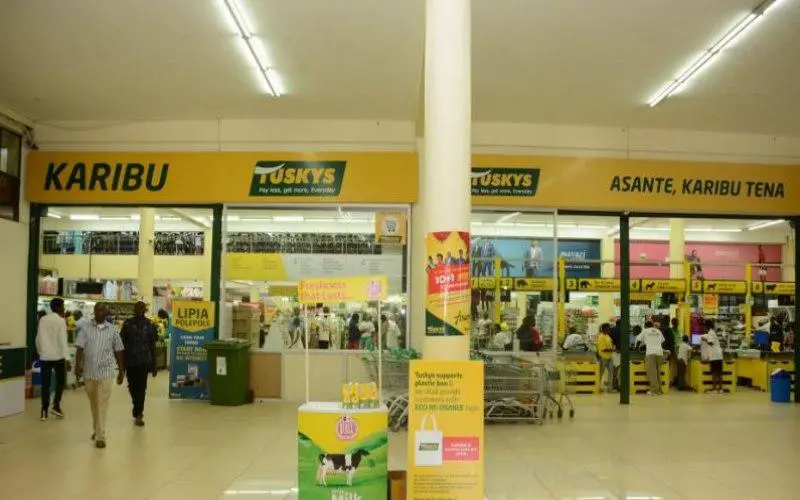The top 10 shareholders in troubled fashion retail chain Deacons East Africa have lost Sh1.2 billion in paper wealth since the firm’s July 2016 listing at the Nairobi bourse, reflecting the heavy price of keeping faith in the company as it slid into administration and suspension from the trading floor.
The company’s October 31 shareholder register shows that most of the owners, including chief executive officer Muchiri Wahome, have left their stock untouched in the past two years, making them sitting ducks in the ensuing value erosion.
The top 10 owners collectively held 82.2 million shares at listing, valued at Sh1.23 billion but that has now fallen to just Sh36.8 million.
Deacons is associated with the family of retired President Mwai Kibaki, whose daughter Judy Kibaki serves on the company’s board.
The firm’s share price has plummeted to 45 cents, a near wipe-out from the listed at Sh15 apiece.
Mr Muchiri has retained his 4.31 million shares, equivalent to a 3.49 per cent stake in the firm since its listing in 2016, meaning the value of his stake has fallen to just Sh1.9 million from Sh65 million at listing.
Diana Bird, who led the company between 1986 and 2003, holds 9.46 million shares (a 7.66 per cent stake) in the firm whose value now stands at Sh4.26 million.
At listing she held 9.84 million shares that were valued at Sh147.6 million but she has since cut her stake in the firm by four per cent or 377,920 shares.
Deacons was suspended from trading at the Nairobi Securities Exchange (NSE) on Monday after going into administration last week due to financial turmoil. The board has appointed Peter Kahi and Atul Shah of PKF Consulting as joint administrators of the company.
Deacons anchor shareholders were allowed to sell up to 50 per cent of their shares under the lock-in terms, meaning that they could have cashed in while the firm traded at double-digit prices shortly after going public.
“…Existing shareholders (and their associated persons or such other group of controlling shareholders) with more than three per cent shareholding, and who have direct influence over the management of the company through representation on the board have given an undertaking not to sell more than 50 per cent of their shareholding before the expiry of 24 months from the date of listing,” said Deacons in the listing information memorandum.
The lock-in period of two years expired in July this year, when the share traded at Sh1.40, meaning it was already unattractive to sell at that price.
Most firms lock-in principal shareholders from any sort of sale when listing, but Deacons’ owners got the leeway to dispose half of their stakes because they were already subject to a lock-in coming out of a public offering in 2010.
The share price erosion has particularly hit hard the largest shareholder, Swedfund International, whose 17 per cent stake in the company fell by Sh252.2 million to just Sh7.8 million.
The family of the late businessman Charles Mwangi Gathuri, who co-founded the business alongside Mr Kibaki, holds 9.34 million shares in Deacons in the name of his widow Charity Wangui.
The shares are now valued at Sh4.2 million, down from Sh140 million at listing.
The late Mwangi’s daughter, Betty Mwangi-Thuo, left the company’s board last December and was replaced by Ms Judy Kibaki.
Aureos East Africa Fund, another big shareholder, was, however, exempt from any sale limitation by the Capital Markets Authority (CMA) due to the nature of its fund.
The fund still holds its 5.53 per cent stake, equivalent to 6.83 million shares, having failed in an attempt to sell the shares to Centum last year. Aureos has therefore seen the value of the stake fall by Sh99 million to Sh3.08 million.
Deacons has fallen victim to slower sales blamed on reduced spending power of its customers due to tough economic times, and lost revenue after selling its Mr Price stores to the franchise owner Mr Price Group of South Africa.
The company’s loss widened to Sh229.5 million in the six months ended June compared to Sh180.4 million last year, as its revenues fell by more than half to Sh378 million from Sh1 billion in the same period in 2017.
The company as a result has issued a profit warning for the year ending December, adding to the gloom surrounding its share at the stock exchange.
NMG

















































